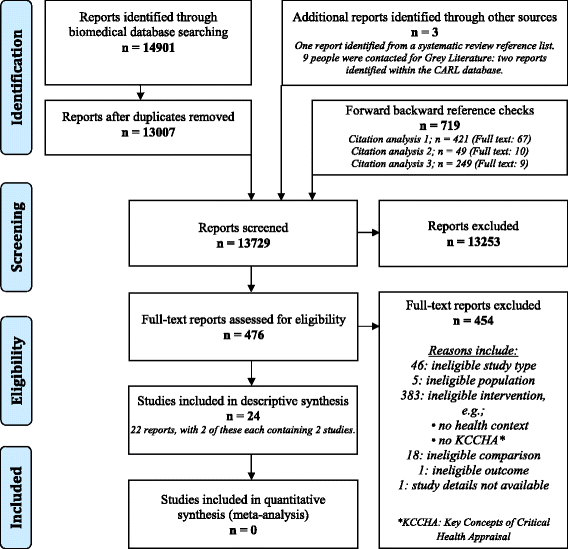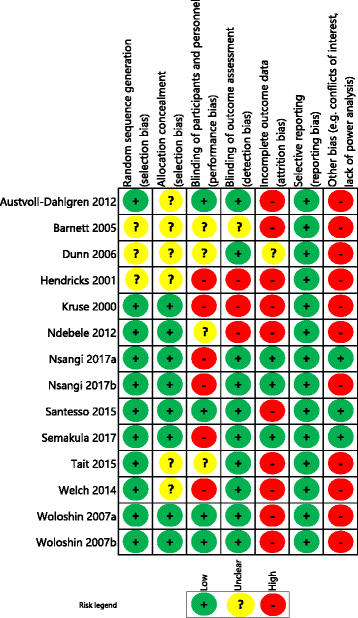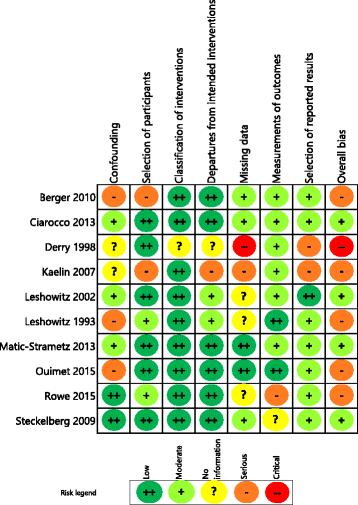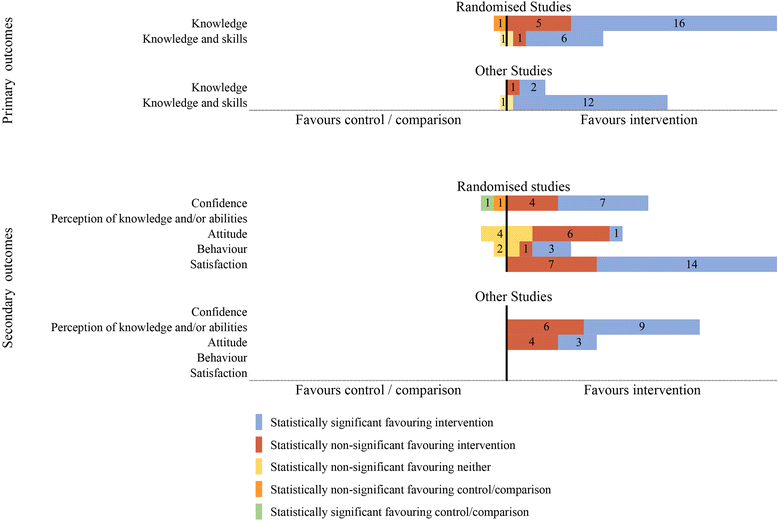Educational interventions to improve people's understanding of key concepts in assessing the effects of health interventions: a systematic review
- PMID: 29716639
- PMCID: PMC5930693
- DOI: 10.1186/s13643-018-0719-4
Educational interventions to improve people's understanding of key concepts in assessing the effects of health interventions: a systematic review
Abstract
Background: Health information is readily accessible but is of variable quality. General knowledge about how to assess whether claims about health interventions are trustworthy is not common, so people's health decisions can be ill-informed, unnecessarily costly and even unsafe. This review aims to identify and evaluate studies of educational interventions designed to improve people's understanding of key concepts for evaluating claims about the effects of health interventions.
Methods/design: We searched multiple electronic databases and sources of grey literature. Inclusion criteria included all study types that included a comparison, any participants (except health professionals or health professional students) and educational interventions aimed at improving people's understanding of one or more of the key concepts considered necessary for assessing health intervention claims. Knowledge and/or understanding of concepts or skills relevant to evaluating health information were our primary outcome measures. Secondary outcomes included behaviour, confidence, attitude and satisfaction with the educational interventions. Two authors independently screened search results, assessed study eligibility and risk of bias and extracted data. Results were summarised using descriptive synthesis.
Results: Among 24 eligible studies, 14 were randomised trials and 10 used other study designs. There was heterogeneity across study participants, settings and educational intervention type, content and delivery. The risk of bias was high in at least one domain for all randomised studies. Most studies measured outcomes immediately after the educational intervention, with few measuring later. In most of the comparisons, measures of knowledge and skills were better among those who had received educational interventions than among controls, and some of these differences were statistically significant. The effects on secondary outcomes were inconsistent.
Conclusions: Educational interventions to improve people's understanding of key concepts for evaluating health intervention claims can improve people's knowledge and skills, at least in the short term. Effects on confidence, attitude and behaviour are uncertain. Many of the studies were at moderate or greater risk of bias. Improvements in study quality, consistency of outcome measures and measures of longer-term effects are needed to improve confidence in estimates of the effects of educational interventions to improve people's understanding of key concepts for evaluating health intervention claims.
Systematic review registration: PROSPERO CRD42016033103.
Keywords: Consumer; Critical appraisal; Critical health literacy; Critical thinking; Education; Health information; Health literacy.
Conflict of interest statement
Authors’ information
LC—MBBS, BSc, PhD candidate. Centre for Research in Evidence-Based Practice, Bond University, Australia.
CDM—MD, Professor of Public Health, Centre for Research in Evidence-Based Practice, Bond University, Australia.
IC—DSc, James Lind Initiative, Oxford, UK.
EG—PhD, Senior Research Fellow, Centre for Research in Evidence-Based Practice, Bond University, Australia.
TCH—PhD, Professor of Clinical Epidemiology, Centre for Research in Evidence-Based Practice, Bond University, Australia.
Ethics approval and consent to participate
Not applicable
Consent for publication
Not applicable
Competing interests
The authors declare that they have no competing interests with the exception of IC, who was a co-author on the Nsangi and Semakula studies.
Publisher’s Note
Springer Nature remains neutral with regard to jurisdictional claims in published maps and institutional affiliations.
Figures




References
Publication types
MeSH terms
LinkOut - more resources
Full Text Sources
Other Literature Sources
Molecular Biology Databases

